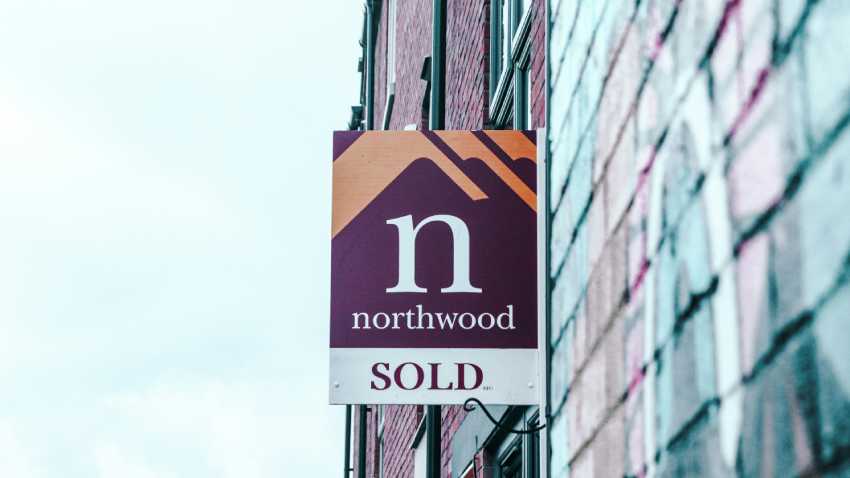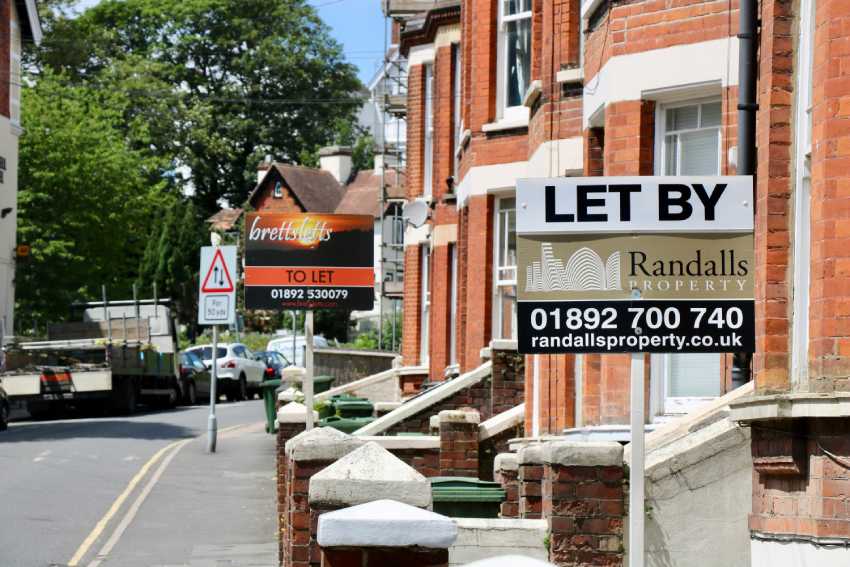As a landlord in the UK, managing rental properties comes with a fair amount of responsibility, especially when it comes to taxes! Whether you’re a new landlord just starting out or someone who’s been renting for years, the tax side of things can feel like navigating a maze. It's easy to stumble, and some of those stumbles can be costly, either through penalties from HMRC or by missing out on valuable tax relief.
Having worked with countless landlords, including many living overseas, I've seen first hand how easy it is to fall into common tax traps. My aim is to help you avoid those pitfalls, ensuring your UK property journey is as smooth and tax-efficient as possible.
Here are five common mistakes many landlords make, and crucially, how to avoid them.
1. Not Keeping Proper Records (Especially When You're Abroad!)
I’ve had more than one client reach out to me in a panic, wondering why their tax return isn’t adding up. More often than not, it boils down to misplaced receipts or incomplete records. It’s far more common than you might think, especially for non-resident landlords managing properties from a distance.

Why It Matters
Keeping accurate, organised records isn't just about making tax time easier; it's your essential backup if HMRC ever asks for proof of your claims. Trust me, the last thing you want is to be scrambling through a pile of paper (or worse, a digital black hole!) weeks after your tax return deadline.
To help our clients avoid this, we provide access to our secure TaxDome client portal. It's designed to make scanning and uploading all rental income and expense documents incredibly easy, ensuring accuracy and that no allowable deduction is ever missed.
How to Avoid This Mistake
To ensure you're always on track, consider these habits:
- Go Digital First: Scan or take clear photos of all receipts for repairs, improvements, insurance, and mortgage interest. Cloud storage solutions (like our Client Portal via TaxDome) are your best friends here, allowing you to access documents securely from anywhere in the world.
- Log Regularly: Make it a weekly or monthly habit to log your income and expenses. This proactive approach prevents that overwhelming, last-minute rush as the tax filing deadline approaches. A simple spreadsheet can also work wonders!
2. Misunderstanding Allowable Expenses (Not Everything is Deductible!)
This is perhaps the most frequent area where landlords trip up. I often see hopeful landlords trying to claim expenses that, while seemingly related, aren't actually allowable by HMRC.
I remember a non-resident landlord who genuinely believed a family holiday to the UK could be claimed as a letting expense because he "checked on his property" a couple of times during the trip. While the thought is there, HMRC is very clear and quite strict about what constitutes an expense of letting a property.
What You Can Claim
- Repairs and Maintenance: Keeping your properties in good working order is key, and the costs of routine repairs (e.g., fixing a broken boiler, repainting a wall, mending a leaky tap) are generally allowable.
- Property Management Fees: If you use a letting agent or property manager, their fees are deductible.
- Insurance: This includes building, contents, and even landlord liability insurance.
- Legal & Accountancy Fees: Costs incurred for drawing up tenancy agreements, eviction notices, or for preparing your tax returns are usually allowable.
- Ground Rent & Service Charges
What’s Not Allowable (Common Traps!)
- Mortgage Interest: You cannot claim finance costs (like mortgage interest) as a deduction against your rental income. Since April 2020, this is no longer a direct deduction but a basic rate tax reduction. This is a common area of confusion, so always seek clarity!
- Personal Travel: As my client discovered, even if you pop in on your property during a personal trip, the travel costs are generally not deductible.
- Capital Improvements: This is a big one! Upgrading a standard kitchen to a luxury one, adding an extension, or converting a loft are considered capital improvements, not repairs. While they don't reduce your rental income for income tax purposes, they can be added to the cost of the property when calculating Capital Gains Tax (CGT) upon sale.
- Personal Use Items: If you buy something for your rental property that you also use personally, you can't claim the full cost.
How to Avoid This Mistake
Always keep your personal and property expenses completely separate. My golden rule for clients is this: "If it's not wholly and exclusively for the purpose of running your property business, it's probably not deductible." If you're ever in doubt, don't guess!
We're here to help clarify what you can and can't claim. If you have any questions, don't hesitate to contact us.
3. Not Accounting for Rental Income Correctly (Reporting Gross vs. Net)
Another story I’ve heard a fair few times, especially from non-resident landlords, is accidentally misrepresenting their rental income. This isn't usually about forgetting rent payments, but rather a misunderstanding of how to report it.
I once had a new client who was meticulously tracking their rental income and expenses, but when it came to their self-assessment, they were only reporting the net profit after deducting expenses. They thought this was the correct approach, effectively trying to claim their expenses before even declaring the full income! It was an honest mistake rooted in confusion about UK tax rules, but it meant their tax return income was significantly misstated.
Why It Matters
HMRC requires you to report your gross rental income first, before you deduct any allowable expenses. If you only report the net figure, it looks like you're understating your actual income, which could trigger an inquiry or lead to fines and penalties. Even if it was an honest mistake, HMRC will expect all income to be reported correctly and deductions claimed in the proper manner.
Remember, it’s not just rent that counts, additional charges like cleaning fees, utilities reimbursements, or late-payment charges also count as taxable income.
How to Avoid This Mistake
- Report Gross Income: Always declare the total amount of rent paid by the tenant and any other income received from your property first.
- Then Deduct Expenses: Claim your allowable expenses separately, from that gross income, on the appropriate sections of your tax return.
- Keep Separate Records: Maintain a clear, separate log for all income received and another for all expenses paid. This helps ensure accuracy and transparency.
4. Failing to Declare Property Sales for Capital Gains Tax (CGT)
Selling a property in the UK isn't as simple as just handing over the keys and collecting the money, especially when you're a non-resident landlord.

A couple of years ago, I worked with a landlord who sold a UK property (which had never been his main home) and completely forgot to declare the sale to HMRC for CGT purposes. The property had significantly increased in value, meaning he owed tax on the gains. Because he didn't declare it within the required timeframe, he ended up facing penalties in addition to the tax due. This is a common trap for those unfamiliar with UK tax rules.
Why It Matters
Capital Gains Tax (CGT) applies when you sell a property that's increased in value, unless it qualifies fully for Private Residence Relief (e.g., it was always your primary home). Even if you've owned the property for decades, if it wasn’t your main home for the full period of ownership and you've made a profit, any gain realised from the sale will typically be subject to Capital Gains Tax.
For non-resident landlords, there are specific deadlines for reporting and paying CGT, typically within 60 days of completion for residential properties.
Fortunately, there are legitimate ways to reduce your taxable gain – like deducting the original purchase price and acquisition costs, sale costs (e.g., estate agent fees, solicitor fees), any capital improvement expenses you've incurred over the years and then applying any allowable reliefs.
How to Avoid This Mistake
- Track Everything from Day One: Meticulously track the purchase price, all acquisition costs (solicitor fees, stamp duty, etc.), and all sale costs.
- Keep Capital Improvement Records: If you've made any significant capital improvements (like an extension or a new heating system), keep all receipts and records. These can reduce your taxable gain when you sell.
- Know Your CGT Obligations: If you've sold a UK residential property for a profit, you must declare the sale and pay any tax due within the specific HMRC timeframe. Don't leave this to chance! For a clearer understanding of CGT for landlords, especially for non-residents, head over to our 60 Day Capital Gains Tax Report page.
5. Ignoring Valuable Tax Relief Options
There are various legitimate tax reliefs and allowances available to landlords in the UK, but often, landlords either forget to claim them or, more commonly, simply don't know they exist!
One of my clients recently realised they hadn't been fully claiming their mortgage interest relief (now a basic rate tax reduction) for years, which had significantly cost them in terms of higher tax bills. These reliefs are designed to reduce your tax burden, so letting them slip through the cracks is akin to leaving money on the table.
Examples of Tax Reliefs and Allowances
- Mortgage Interest Relief (Finance Costs Restriction): While no longer a direct deduction from rental income, landlords can still claim a basic rate tax reduction on finance costs, such as mortgage interest on loans taken out for the property. This is crucial for many landlords.
- Replacement of Domestic Items Relief: If you rent out a furnished or partly furnished property, you can claim relief for the cost of replacing domestic items (like furniture, furnishings, appliances, kitchenware) within the property.
- Property Income Allowance: For smaller incomes, a £1,000 property allowance can be claimed, simplifying things if your expenses are below this amount.
How to Avoid This Mistake
Stay proactive in understanding the latest reliefs and allowances available to landlords. Tax rules can change, so being informed is key. If you're not sure about what you can claim, or if you simply want peace of mind, get in touch through our Contact page. We're here to ensure you're not paying a penny more than you need to.
Conclusion
Tax mistakes are common for landlords, whether you're based in the UK or managing your property from halfway across the world. But the good news is that many of them can be avoided with a little knowledge, organised record-keeping, and the right professional support.
By understanding what expenses are allowable, accounting for all income, being aware of CGT obligations, and actively seeking out relief options, you can stay confidently on top of your tax obligations, and avoid those costly penalties.
If you have any questions, don't hesitate to Contact us. We're always happy to help!

